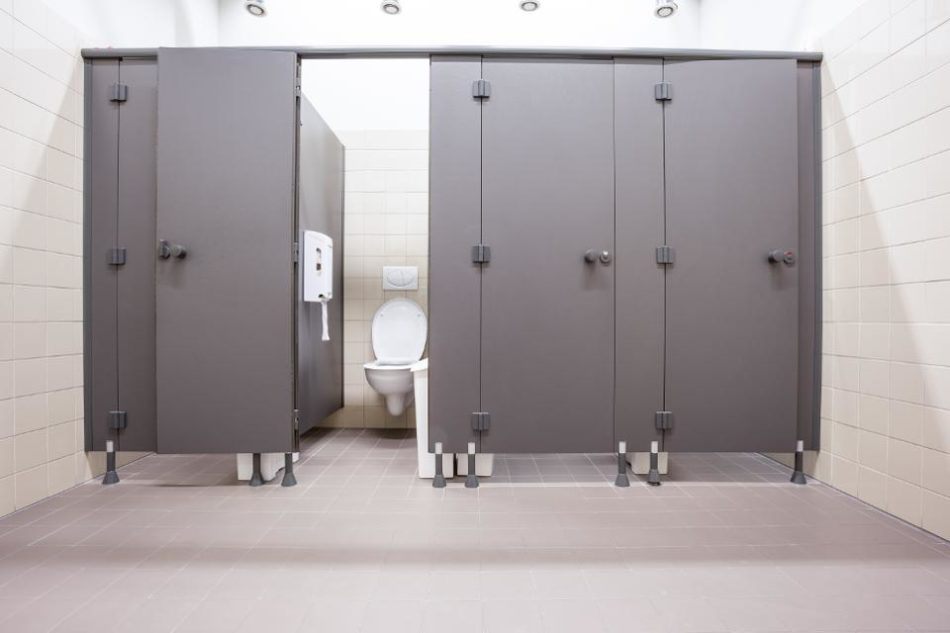As parks and beaches reopen around the country for the summer season this weekend, many visitors will be worrying about public bathrooms—and not just for the lines: the risk of Covid-19 transmission could linger in the air in bathrooms long after infectious patrons pass through.
KEY FACTS
Experts warn that in order to prevent the spread of coronavirus via fecal-oral transmission, you should flush with the lid down; however this is a huge challenge with public restrooms, as many do not have lidded toilets and people touch door handles and sink faucets before handwashing.
“It’s time for a rethink on lots of things, and bathrooms are one of them,” Peter Collignon, a professor of infectious disease and microbiology at the Australian National University, told the Guardian.
Collignon says infectious fecal matter can live on sink taps and doors, so he advises that shared bathrooms should be as contact-free as possible; he says patrons should sanitize their hands after exiting the bathroom.
Public bathrooms should be avoided, but if you must use one, waiting two minutes between users is optimal, Qingyan Chen, a Purdue University engineering professor who studies disease spread, told Forbes.Without touch-free bathrooms, businesses are relying on employees to keep them clean: McDonalds is requiring franchisees to clean bathrooms every 30 minutes, while others are hiring bathroom attendants to ensure time between users and cleanliness, per the Washington Post.
Many establishments have taken to replacing blow dryers with paper towels, decommissioning tightly-spaced urinals and making stall doors touch-free.
This also suggests that large group gatherings like outdoor concerts, which rely on port-a-potties without flush, may need a septic rethink.
KEY BACKGROUND
Because of something called ‘toilet plume,’ stool or urine can escape from the toilet into the air and spread disease, according to the Association for Professionals in Infection Control and Epidemiology. About 60% of coronavirus patients had viral particles in their feces, according to Collignon; however, 80% of viral particles that escape from feces into the air can be contained by simply closing the lid when flushing.
TANGENT
Like port-a-potties—buffets, hot food bars, office coffee machines, handshakes and reusable mugs and bags are among the elements of everyday life that may not return with economic reopening. The CDC and individual businesses like Starbucks SBUX, Whole Foods and Trader Joe’s are trying to prevent the spread of disease by minimizing elements of society that relied on shared physical contact via Forbes.
FURTHER READING
Why You Should Flush With The Lid Down: Experts Warn Of Fecal-Oral Transmission Of COVID-19 (Forbes)
Food Samples, Office Coffee And Other Parts Of Everyday Life That Will Not Return With Reopening (Forbes)
The need to go is a big barrier to going out. Why public bathrooms are a stumbling block for reopening. (Washington Post)
Sensor taps and no door handles: Covid-19 shows it’s time to rethink public toilets (Guardian UG)

